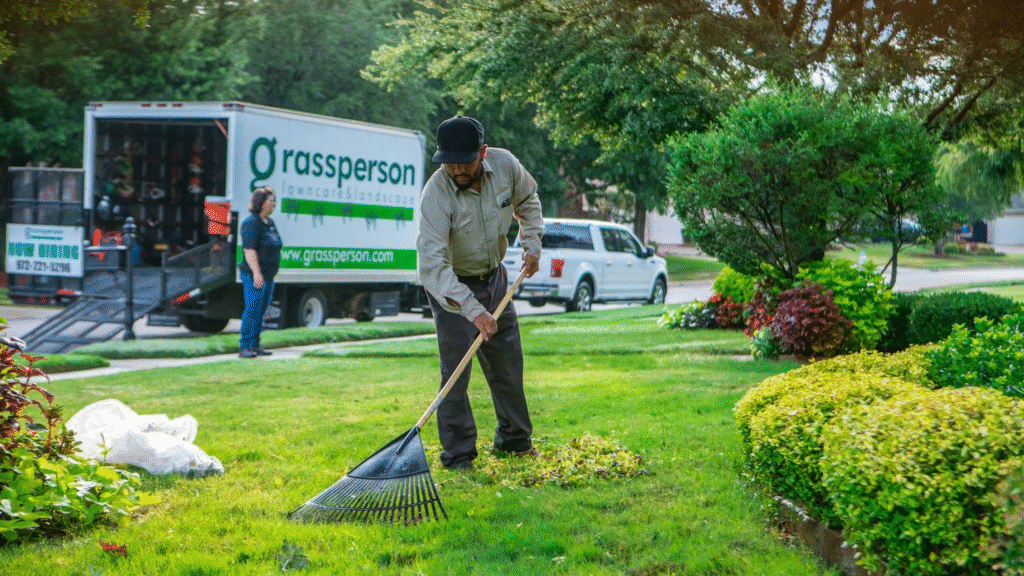Landscapers Careers Growth: A Blooming Industry with Flourishing Opportunities
In an increasingly urbanized world, the demand for skilled professionals who can transform ordinary outdoor spaces into beautiful, functional environments continues to grow. If you’re considering a career in landscaping or are already working in the field and wondering about your future prospects, you’ve chosen an industry with remarkable resilience and promising growth trajectories. The landscaping profession offers diverse career paths that blend creativity, technical knowledge, physical work, and business acumen—making it an attractive option for those who enjoy working outdoors and creating lasting beauty.
Understanding the Landscaping Industry Landscape
The landscaping industry in the United States has demonstrated impressive stability even during economic downturns. According to the Bureau of Labor Statistics (BLS), employment of grounds maintenance workers, including landscapers, is projected to grow 8 percent from 2020 to 2030, about as fast as the average for all occupations. This translates to approximately 173,200 openings for grounds maintenance workers each year, on average, over the decade (Bureau of Labor Statistics).
What’s driving this consistent demand? Several factors contribute to the industry’s growth:
Urbanization and Commercial Development
As urban centers expand and businesses continue to invest in their physical locations, the need for professional landscaping services increases. Commercial properties understand that attractive landscaping isn’t just aesthetically pleasing—it creates positive first impressions, increases property values, and can even boost employee morale and productivity.
You’ll find opportunities to work on diverse projects, from corporate campuses and shopping centers to apartment complexes and public parks. Each presents unique challenges and creative possibilities that can help you develop specialized expertise.
Residential Market Expansion
Homeowners increasingly recognize the value that professional landscaping adds to their properties. Well-designed outdoor spaces extend living areas, provide spaces for relaxation and entertainment, and can significantly enhance resale value. The National Association of Realtors estimates that professional landscaping can increase a home’s value by up to 20%, offering homeowners substantial return on investment.
You might find yourself designing drought-resistant xeriscapes in Arizona, creating traditional English gardens in New England, or installing outdoor entertainment spaces complete with kitchens and fire features in California. The residential sector offers tremendous opportunities for creative expression and specialized service offerings.
Environmental Consciousness and Sustainability
As environmental concerns become more prominent, demand has surged for landscapes that are not just beautiful but also sustainable. Many homeowners and businesses are seeking environmentally friendly landscaping solutions that conserve water, support local ecosystems, and reduce chemical usage.
Your expertise in sustainable practices like native plant selection, rainwater harvesting, permeable hardscaping, and organic lawn care will increasingly become valuable assets as clients seek to reduce their environmental footprint while maintaining beautiful outdoor spaces.

Career Pathways in Landscaping
One of the most attractive aspects of the landscaping industry is the diversity of career paths available. Whether you prefer hands-on work, creative design, business management, or specialized technical roles, the industry offers growth opportunities aligned with various interests and strengths.
Entry-Level to Management Progression
Many successful landscaping professionals begin their careers as landscape laborers or assistants, learning the fundamental skills of the trade through hands-on experience. From these entry points, career advancement often follows a trajectory similar to this:
- Landscape Laborer/Assistant: Learn basic techniques, plant identification, equipment operation, and industry standards.
- Crew Leader: Take responsibility for small teams, ensure quality work, and communicate with clients.
- Foreman/Supervisor: Manage multiple crews, handle scheduling, troubleshoot problems, and maintain client relationships.
- Project Manager: Oversee complex landscaping projects from conception to completion, including budgeting, resource allocation, and client communication.
- Operations Manager: Direct all field operations for a landscaping company, including staff management, quality control, and process improvement.
What’s particularly appealing about this career ladder is that it rewards demonstrated competence and leadership ability, often valuing hands-on experience as much as formal education. Your willingness to learn, solve problems, and take initiative can accelerate your advancement through these roles.
Specialization Opportunities
As you gain experience in the industry, you might discover particular aspects of landscaping that especially interest you. Specializing can significantly increase your earning potential and job satisfaction. Consider these rewarding specializations:
Landscape Design and Architecture
If you have a creative eye and strong visualization skills, you might pursue landscape design. Landscape designers create plans for outdoor spaces that balance aesthetics, functionality, client preferences, and site constraints. With additional education, you could become a landscape architect, a licensed professional who designs more complex landscapes and can stamp official plans.
The median annual wage for landscape architects was $70,630 in May 2020, according to the BLS, with the highest 10 percent earning more than $112,290.
Irrigation Specialist
Water management is increasingly critical in landscaping, particularly in drought-prone regions. As an irrigation specialist, you’ll design, install, and maintain systems that deliver appropriate amounts of water to different landscape zones while minimizing waste. Smart irrigation technologies that respond to weather conditions and soil moisture levels represent cutting-edge developments in this field.
Arboriculture
Arborists specialize in the care and maintenance of trees. This specialization requires knowledge of tree biology, proper pruning techniques, disease diagnosis, and sometimes climbing skills for working in tree canopies. Certified arborists are particularly in demand for their expertise in preserving valuable mature trees during construction projects.
Hardscaping
If you enjoy construction aspects of landscaping, specializing in hardscaping might be appealing. Hardscape specialists build non-plant elements like patios, walkways, retaining walls, outdoor kitchens, and water features. This specialization often requires knowledge of construction principles, materials science, and sometimes masonry skills.
Business Ownership
Many landscaping professionals aspire to own their businesses, and the industry offers relatively accessible pathways to entrepreneurship. You might start with a small operation focused on routine maintenance and gradually expand to offer more specialized services as your business grows.
The National Association of Landscape Professionals notes that the landscaping industry is dominated by small businesses, with approximately 604,000 companies employing fewer than 10 people. This fragmentation creates opportunities for new entrants who can differentiate themselves through quality service, specialized offerings, or innovative approaches to common challenges.
Education and Certification Pathways
While many landscaping careers begin with on-the-job training, formal education and professional certifications can accelerate your career progression and increase your earning potential. Here are some valuable credentials to consider:
Formal Education Options
- Certificate Programs: Typically offered by community colleges or vocational schools, these programs provide fundamental knowledge of plant materials, soil science, landscape design principles, and business practices in 6-12 months.
- Associate Degrees: Two-year programs that offer more comprehensive education in horticulture, landscape design, and business management.
- Bachelor’s Degrees: Four-year programs in horticulture, landscape management, or landscape architecture provide in-depth knowledge and often include internship opportunities with established firms.
Professional Certifications
Industry certifications demonstrate your commitment to professional standards and specialized knowledge. Some of the most recognized certifications include:
- Landscape Industry Certified Technician: Offered by the National Association of Landscape Professionals (NALP), this certification validates your technical skills in installation, maintenance, or irrigation.
- Certified Landscape Professional: Also offered by NALP, this certification focuses on business management skills for landscape company owners and managers.
- ISA Certified Arborist: The International Society of Arboriculture offers this credential for professionals who specialize in tree care.
- Certified Irrigation Designer: The Irrigation Association offers this certification for professionals who design water-efficient irrigation systems.
According to NALP research, certified professionals typically earn 5-15% more than their non-certified counterparts, making certification a worthwhile investment in your career growth.

Salary and Compensation Trends
Understanding the earnings potential in landscaping careers helps you set realistic expectations and goals for your professional development. The table below provides an overview of typical salary ranges for various positions in the landscaping industry, based on data from the Bureau of Labor Statistics and industry surveys:
| Position | Experience Level | Annual Salary Range (USD) | Growth Potential |
|---|---|---|---|
| Landscape Laborer | Entry-Level | $25,000 – $32,000 | Moderate |
| Crew Leader | 2-4 years | $32,000 – $45,000 | Moderate |
| Foreman/Supervisor | 4-7 years | $42,000 – $60,000 | High |
| Landscape Designer | Varies by education | $45,000 – $75,000 | High |
| Landscape Architect | Licensed Professional | $65,000 – $115,000 | Very High |
| Project Manager | 5+ years | $55,000 – $85,000 | High |
| Operations Manager | 8+ years | $70,000 – $100,000+ | Very High |
| Business Owner | Varies | $40,000 – $250,000+ | Unlimited |
It’s worth noting that these figures can vary significantly based on:
- Geographic Location: Urban areas and regions with higher costs of living typically offer higher wages.
- Company Size: Larger landscaping firms often provide better compensation packages, including benefits like health insurance and retirement plans.
- Specialization: Technical specialists and those with unique skills command premium salaries.
- Seasonality: In northern regions with distinct winter seasons, you might need to develop complementary skills (snow removal, holiday lighting installation) to maintain year-round income.
Industry Trends Shaping Future Opportunities
To position yourself for success in the landscaping industry, it’s important to stay attuned to emerging trends that will create new opportunities in the coming years:
Technology Integration
The landscaping industry is increasingly embracing technology to improve efficiency, service quality, and client communication:
- Design Software: 3D visualization tools allow clients to see proposed landscapes before installation begins, improving client satisfaction and reducing costly changes.
- Drone Technology: Aerial photography and mapping help with site analysis and project planning for larger properties.
- Business Management Software: Specialized applications streamline scheduling, billing, and customer relationship management.
- Smart Irrigation Controllers: Wi-Fi-enabled systems that adjust watering schedules based on weather forecasts and soil conditions.
Developing proficiency with these technologies can distinguish you in the job market and improve your effectiveness on the job.
Climate Adaptation and Resilience
Climate change is significantly impacting landscaping practices across the country:
- Drought-Resistant Landscaping: In water-stressed regions, expertise in xeriscaping and low-water landscaping is increasingly valuable.
- Stormwater Management: As extreme weather events become more common, knowledge of rain gardens, bioswales, and permeable paving helps address flooding concerns.
- Heat-Resistant Plant Selection: Understanding which plant varieties can thrive in changing climate conditions will be essential.
According to the Environmental Protection Agency, green infrastructure approaches to landscaping not only address environmental concerns but also create healthier communities and can reduce long-term maintenance costs.
Biophilic Design Integration
Biophilic design—incorporating natural elements into built environments—is gaining popularity in commercial and residential settings. Research shows that connections to nature improve human health and well-being, creating demand for landscapes that foster these connections.
This trend creates opportunities for landscapers who understand how to create immersive natural experiences in urban environments, including living walls, roof gardens, and naturalistic plantings that support biodiversity.
Overcoming Industry Challenges
While the landscaping industry offers abundant opportunities, it also presents certain challenges. Understanding these challenges and developing strategies to address them will help you build a sustainable, rewarding career:
Labor Shortages
The landscaping industry, like many trades, faces persistent labor shortages. As a result, companies increasingly value employees who demonstrate reliability, willingness to learn, and leadership potential. This challenge creates accelerated advancement opportunities for dedicated professionals.
If you aspire to management roles, developing skills in recruitment, training, and team building will make you particularly valuable to employers struggling with staffing challenges.
Seasonality
In many regions, landscaping work fluctuates with the seasons. Developing complementary skills that are in demand during slower periods—such as holiday lighting installation, snow removal, or indoor plant care—can help you maintain stable year-round income.
Additionally, using off-season periods for education, certification, and professional development can accelerate your career advancement.
Physical Demands
Landscaping work can be physically demanding, particularly in entry-level roles. Adopting proper techniques, using appropriate equipment, and following safety protocols helps preserve your long-term health and extends your career longevity.
Many successful landscapers also plan for career evolution that gradually reduces physical demands as they age, transitioning toward design, sales, management, or consulting roles that leverage their experience while being less physically taxing.

Networking and Professional Growth
Building a strong professional network is invaluable for career advancement in the landscaping industry. Consider these approaches:
Industry Associations
Organizations like the National Association of Landscape Professionals (NALP), the American Society of Landscape Architects (ASLA), and state-level green industry associations offer networking events, educational resources, and certification programs. Active participation in these organizations can connect you with mentors, potential employers, and business partners.
Continuing Education
The landscaping industry continuously evolves with new plant varieties, materials, techniques, and technologies. Committing to lifelong learning through workshops, webinars, trade shows, and formal courses keeps your skills relevant and demonstrates your professionalism to employers and clients.
Building Your Portfolio
Documenting your work through high-quality photographs and project descriptions creates a visual resume that showcases your capabilities. A strong portfolio is particularly important for design-oriented roles and can be invaluable when seeking new employment or clients.
Conclusion: Cultivating Your Landscaping Career
The landscaping industry offers fertile ground for career growth, combining creative satisfaction, technical challenges, and entrepreneurial opportunities. By understanding industry trends, investing in education and skills development, and building professional relationships, you can cultivate a rewarding career that grows and evolves throughout your working life.
Whether you’re drawn to the artistry of landscape design, the technical aspects of irrigation and hardscaping, or the business challenges of running your own company, the industry has paths that can align with your strengths and interests. With the consistent demand for professional landscaping services and the diverse specializations available, you’ll find abundant opportunities to create beautiful, functional outdoor spaces while building a successful career.
As you navigate your professional journey in landscaping, remember that each project contributes not just to your skill development but also to environmental sustainability and the quality of life in your community. Few careers offer the unique combination of tangible results, creative expression, and positive impact that landscaping provides.






